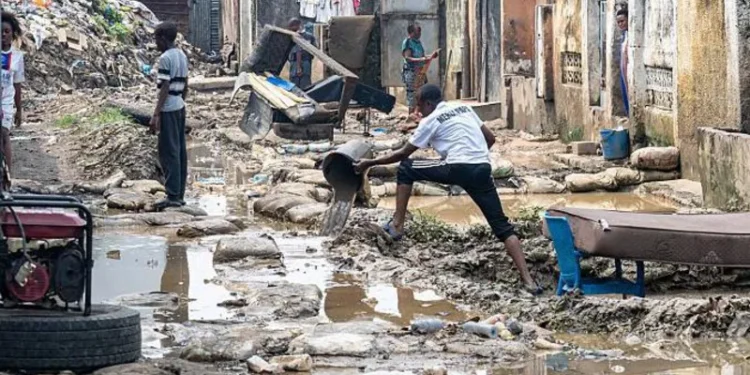At least 29 people have been killed in flood waters and landslides in the Democratic Republic of Congo’s capital, Kinshasa, following unusually heavy rains in the dry season.
The interior ministry said homes were swept away, roads were flooded, and widespread power cuts were recorded as a third of the city was affected by the downpour.
According to DR Congo’s meteorological agency Mettelsat, 90mm (3.5in) of rain was recorded on Saturday morning, higher than on any single day during the rainy season that lasts from November to May.
Experts say the heavy rains are being fuelled by climate change, and the consequences are devastating due to a lack of urban planning and proper drainage in the city.
Kinshasa, which sits on the Congo river, one of the longest in the world, has a population of nearly 18 million people, with many residents living in poorly built homes or near areas prone to flooding.
The city’s rapid growth, with an influx of people from other parts of the country, has put a strain on its infrastructure, making it more vulnerable to natural disasters.
The government has extended its condolences to bereaved families and will cover the funeral expenses of the victims.
Interior Minister Shabani Lukoo chaired a crisis meeting to coordinate the government’s flood response, and efforts are underway to provide relief to those affected.
This is not the first time Kinshasa has experienced severe flooding, with over 100 people dying in flash floods in eastern DR Congo’s South Kivu region in May, and more than 30 in Kinshasa in April.
The recurring nature of these disasters highlights the need for sustainable urban planning and infrastructure development to mitigate the impact of climate change.









